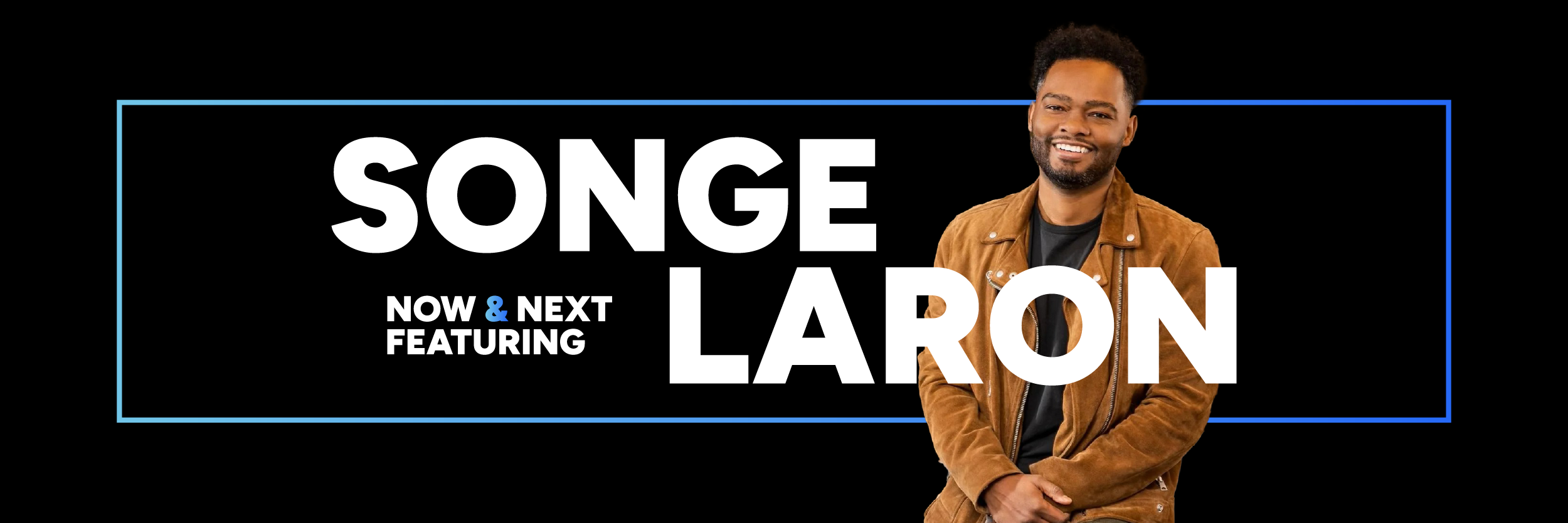
This feature is part of the Voices of the Now & Next series—a collaboration between VaynerSpeakers and the New York Stock Exchange, highlighting influential leaders shaping markets, culture, and business today.
Songe LaRon, CEO & Co-Founder, Squire Technologies
In 2015, Songe LaRon and his co-founder, David Salvant were building software specifically for barbershops—booking systems, payment processing, and inventory management. These are tools that would help shop owners run their businesses better. There was just one problem: LaRon was a corporate lawyer. Salvant worked in finance. Between them, they had exactly zero hours of experience running a small service business.
Most founders would have done customer interviews, focus groups, or maybe shadow someone for a day. Build fast, launch faster, iterate based on feedback.
LaRon and Salvant did something different. They invested twenty thousand dollars and bought a barbershop in Manhattan with a goal to understand their customer from the inside—the cash flow, the no-shows, the walk-ins, the inventory problems that only surface when you're running low on supplies during your busiest hours.
It was an expensive education. One that's now valued the company at $750 million.
When Squire launched, it was born out of real barbershop experience, built from the ground up by someone who had actually been behind the chair.
LaRon's bet: You could build a massive business by being laser-focused on community.
Barbershops aren't one-size-fits-all businesses, and they've been forced to use one-size-fits-all software. When something was finally built specifically for them, they paid attention.
By 2020, Squire had raised $60 million in Series C funding, backed by investors including Steph Curry and Trevor Noah. In 2025, it powers thousands of barbershops across multiple continents, valued at $750 million.
The tech industry often treats efficiency and community as opposing forces. Move faster, automate more, eliminate friction.
But barbershops taught LaRon something different: sometimes friction is where the value lives. The conversation while someone's waiting. The regular who doesn't need to book ahead. The way a barbershop becomes a third place where actual community happens.

Squire's job isn't to eliminate that friction. It's to handle everything else—scheduling, payments, inventory—so barbers can focus on craft, relationships, and community.
Now, LaRon is bringing AI capabilities to small business owners. But his philosophy remains unchanged: barbers aren't passionate about technology itself; they understand its value when it helps them save money, time, and energy. Good technology doesn't replace human connection. It creates more space for it.
As Squire has grown, LaRon has faced what he considers the company's most surprising challenge: maintaining connection to customers as layers form between leadership and the frontlines.
That's why Squire still shows up at trade shows. Why they're still watching barber battles. Why staying connected isn't optional—it's central to who they are.

Squire isn’t meant to reinvent barbershops. It is meant to help business owners operate to their full potential while preserving what makes them valuable.
It's a quieter kind of transformation. One that enables barbershop owners to expand, to hire, to build wealth that compounds across generations—all while keeping the community business model intact.
In a tech industry that celebrates disruption for its own sake, LaRon chose to build infrastructure that empowers rather than replaces.
The best builders don't just identify problems from a distance. They get close enough to understand them from the inside. And sometimes, that means buying a barbershop.


Zach Nadler: Community continues to be a big buzzword right now… how have you successfully tapped into an actual community while building a billion-dollar business?
Songe LaRon: I like to say barbers were the original influencers. They exist in these communities where people occupy these spaces. So we wanted to mirror that in the company we were building. We are part of the community. We go to in-person trade shows, events, and shops around the country… wherever people tend to be congregating.
Zach Nadler: Has leaning into the community atmosphere been a competitive advantage for you?
Songe LaRon: Absolutely. We are willing to go places that other companies won't go because they don't care about their customer base the way that we do.
Zach Nadler: If you could go back in time, is there any advice you'd give yourself about the process of scaling the brand the way you did?
Songe LaRon: The best time to raise money is when you don't need it.
Laura Diorio: What do you think is the next business trend on the horizon that you and your co-founder are really eyeing right now?
Songe LaRon: We are investing heavily in AI and our roadmap. We recently released our first product called Squire Operator. The goal is to allow the smaller guys and smaller shops to compete and have infrastructure as if they were much bigger.
Laura Diorio: How do you measure impact beyond revenue?
Songe LaRon: Our highest measure of success is how our customers perform. And how we're able to see them succeed in their business and achieve the things they want to achieve.
Laura Diorio: Twenty years from now, how do you hope people will talk about how you built Squire?
Songe LaRon: I hope they say, "Hey, they took a bet on the underdog and they believed in a segment that was underserved and ignored by the Silicon Valley grid."